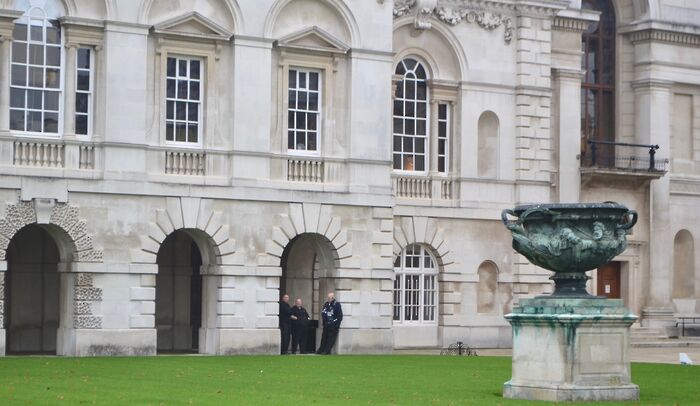Eight Council members dissent from pay review, call for transparency of senior staff pay
Cambridge’s first annual remuneration report listed 12 university employees as receiving annual basic salaries exceeding £200,000, though their positions in the University were not disclosed

Eight members of the University Council have called on the University of Cambridge to improve transparency of salaries and benefits paid to senior University officials, in a note of dissent published yesterday.
The note dissented from the University’s first annual publication of its remuneration report, which followed new guidelines by the national representative body for chairs of UK universities, the Committee of University Chairs (CUC) and the Office for Students, a new regulatory body for higher education (OfS).
It was signed by the three student representatives of Council – CUSU President Evie Aspinall, GU President Sofia Ropek-Hewson, and University Councillor Marcel Llavero Pasquina – as well as Professors Nick Gay and Ross Anderson, Dr Nicholas Holmes, Dr Stephen Cowley, and Dr Ruth Charles.
Council members argued that the practice of detailing the pay and compensation package of Vice-chancellor Stephen Toope in the annual report “should be followed for other senior post-holders”. The signatories wrote, “the Council has missed an important opportunity to improve transparency and accountability”, and have asked that “at the very least”, such details “should continue to be disclosed to the Council”.
The University’s annual remuneration report outlines remuneration of current Vice-Chancellor Stephen Toope and his predecessor Leszek Borysiewicz from July 2017 to July 2018 – the sole members of the University whose salary and salary compensation information are identified and explained in the report.
The report breaks down Toope’s £428,000 remuneration package since his installation as vice-chancellor last October, including healthcare, accommodation, and personal travel costs. It also provides information on pay ratios of the vice-chancellor pay compared to median pay, of 11.3 times the pay of median staff, and 6.0 times the pay of academic and clinical staff.
In the note of dissent, the signatories referenced the principle of “transparency and accountability” in the CUC’s ‘Higher Education Senior Staff Remuneration Code’, which says that institutions “must publish a readily accessible annual statement” containing an institution’s policy for employees within the remit of the Remuneration Committee.
The CUC code does not explicitly require that details of all senior officials’ pay packages be publicly disclosed, though says that for senior staff, there must be an “institutional level justification for remuneration”, while the pay of the vice-chancellor must be separately justified.
In 2018, 314 University of Cambridge employees received a basic salary of more than £100,000 and twelve earned a basic salary exceeding £200,000 according to the Council report, however the positions of the individuals, and further information on additional remuneration, are not listed.
In addition to basic pay, the University has a structure of additional means of compensation to its staff, including ‘market pay awards’ – designed to retain employees with highly marketable skills.
 News / Uni Scout and Guide Club affirms trans inclusion 12 December 2025
News / Uni Scout and Guide Club affirms trans inclusion 12 December 2025 News / Cambridge Vet School gets lifeline year to stay accredited28 November 2025
News / Cambridge Vet School gets lifeline year to stay accredited28 November 2025 News / Cambridge study finds students learn better with notes than AI13 December 2025
News / Cambridge study finds students learn better with notes than AI13 December 2025 Science / Did your ex trip on King’s Parade? The science behind the ‘ick’12 December 2025
Science / Did your ex trip on King’s Parade? The science behind the ‘ick’12 December 2025 News / Pembroke to convert listed office building into accom9 December 2025
News / Pembroke to convert listed office building into accom9 December 2025









